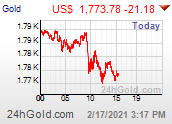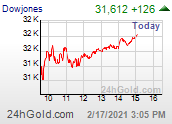Parks Policy in the Making
Ferril Lake Fountain at City Park
Dave Felice, who emerged as the "Loyal Opposition" during the discussion of AEG holding a Mile High Music Festival in City Park, has broadened his scope to include the current meetings being held on the overall policy of the City regarding private use of our public parks. This group, called the Admissions-Based Special Events Policy Task Force, has been meeting to formulate a coherent City policy for all of our parks. Here is his report from today's meeting:Acknowledging that she is "not comfortable" with the idea of exclusive commercial events in parks, Denver Parks and Recreation Manager Kim Bailey says the city needs a policy to deal with such proposals.
Bailey also says there appears to be little or no interest in development of a genuine permanent festival in Denver.
The Parks and Recreation Manager says developing a policy on commercial closure of park lands was not on her agenda and was generated by a proposal from last summer from the AEG Live concert promotion company. AEG wanted to close the western two-thirds of city for a two-day music and arts festival. Plans were cancelled when the adjacent Denver Zoo objected.
Bailey's comments follow the latest monthly meeting of the "Admissions-Based Special Events Policy" (ABSEP) Task Force. About 35 people attended the meeting February 13, but representatives of city agencies and event organizers outnumbered neighborhood advocates by about three-to-one.
Neighborhood representatives continue to be skeptical, expressing concern about the adverse impact, such as noise and congestion. Others contend it is inappropriate to block free access to public property.
There are currently seven parks designated as "festival" locations because sales of alcoholic beverages are already permitted. Even so, Bailey says it's "technically possible" to stage a festival at any other park location as long as alcoholic beverages would not be sold or served.
The seven festival locations are Civic Center, City, Sloan's Lake, Creekfront, DCPA Sculpture Park, Skyline, and Confluence Parks. Sloan's Lake resident Larry Ambrose asked about getting his neighborhood park removed from the list. According to Ambrose, City Councilman Rick Garcia doesn't want such events at Sloan's Lake Park.
Saying much more work needs to be done, Bailey presented a draft of what a policy might contain. The policy would be designed to govern operation of special events in city parks which would result in closure of sections of the parks and organizers would charge admission. According to Bailey, preparation of the draft showed that "quite a few pieces are already in place" and there just needs to be what she calls "appropriate tweaking" for admission-based special events.
Meeting participants had an extended discussion of what constituted capacity for special events at the proposed locations. Brad Emerick, Fire Protection Engineer for the Denver Fire Department, presented information on "occupant load factors" and requirements for entrances and exits. Task Force members seem close to agreement that capacity is different if event attendees are standing, moving, or sitting.
At one point, there was visible friction between Assistant City Attorney Patrick Wheeler and Ambrose. With a scowl, Wheeler declared "I object" in response to a contention by Ambrose that people should be able to vote on having commercial park events. Wheeler says a popular vote is "not legally required."
Bailey says Portland, Oregon has a policy on special events which includes an "event coordinator appeal process." She says her staff will be looking at the Portland practices and present information at the next ABSEP meeting. She suggests not meeting again until April, so smaller groups can investigate various aspects of the proposed policy.
Although there were initial reports that Parks and Recreation wanted a policy by June, Bailey emphatically says "there is no deadline."
"There is absolutely an opportunity for continued conversation," she notes. "My goal is to be comfortable with the (ABSEP) proposal before we take the final draft to the general public."
Prior to the next formal meeting, Bailey says Parks and Recreation will be looking at the infrastructure installation and removal practices for concerts held in cities such as Austin, Chicago, and Atlanta.
Although Cheesman Park is not a location where alcoholic beverages can be served, some participants mentioned that people attending smaller events at Cheesman sometimes bring wine and beer. Parks representative Stu Bader admits, "It happens," but such practice is technically illegal.
According to Bailey, Parks and Recreation has "internal guidelines" on what might be considered objectionable during a festival event. One requirement is that no permanent signage is allowed. Promotion of firearms, tobacco, or alcoholic beverages is not permitted. In response to a question, Bailey admitted, however, that if nudists presented a proposal for a park event, they would be considered.
Parks Marketing Manager Jill McGranahan acknowledges the policy is an effort to "look at alternative ways to offset the cost" of running the parks. She contends that current non-profit events effectively result in closure of sections of parks.
Bailey also emphasizes that Parks is not responsible for regulating alcoholic beverage sales. "(Organizers) have to follow (city) Excise and License rules," she says. "It is the organizers' hurdle to work with (beverage sales) regulators."
While some neighborhood representatives continue to suggest the city develop a specific site for commercial events, Bailey says "I doubt Elitch's is moving" and notes that a festival park has not been considered as new neighborhoods and city facilities were built in recent years.
"We are not pushing this (policy)," says Bailey. "When the (AEG) proposal was presented, it was a time to reconsider and rethink our policy." The Parks and Recreation Manager also admits there are no current commercial festival proposals.
Story by: Dave Felice
If you want to be kept up to date on these and other Denver Parks issues, may I suggest that you go to www.savecitypark.org where you can sign up to receive an email when new reports are posted.











Newspaper Looks at Parks Policy Talks on Admission
ReplyDeleteIn a front-page story, Denver Daily News reporter Peter Marcus examines the positions involved in developing a coherent policy on events which would inhibit full public access.
Reprinted with permission, here is the text of the story published February 13, 2008:
___________________
Parks Event Idea Panned
Neighbors worry over impact,
no access to public property
By Peter Marcus
Denver Daily News Staff Writer
Neighbors are concerned that a city proposal to allow commercial special events in city parks would lock people out of public property and create a chaotic environment of congestion and noise.
The city has proposed a policy for event promoters to obtain a permit for hosting major events in seven of the city's parks, including Sloan's Lake, City Park, Confluence Park, Civic Center, Creekfront Park, Skyline Park and Sculpture Park at the Denver Center for Performing Arts. The proposal was suggested after AEG Live regional President and Chief Executive Chuck Morris proposed holding a two-day music and arts festival in City Park.
Morris met resistance not only from neighbors, but also from Denver Zoo officials who said the festival - that is expected to attract 50,000 people per day on July 19-20 - would disrupt the nearby animals in the zoo. Morris has since announced plans to move the Mile High Music and Arts Festival to Dick's Sporting Goods Park in Commerce City.
Seeking less red tape, opposition
But city officials have since tried to work out a policy so that event promoters like Morris are able to use the seven parks for major events, without as much opposition and red tape. City Park neighbor David Felice says it is unfair for the city to permit commercial promoters on public property.
“By doing this, the city is essentially denying free and open access to our public parks,” said Felice. “The parks should be open to the public.”
City leaders and neighborhood organizations meet to continue discussing the proposal.
Felice said the permitting would be different than other city festivals like A Taste of Colorado and the People’s Fair, because admission would be charged to enter the park and a perimeter would be established to keep patrons without tickets from entering.
“This is a policy that is strictly covering the privilege of allowing commercial organizations to use public property to in effect usurp the public’s right to use that property,” said Felice.
But Scott Robson, deputy manager of parks and planning, said events like A Taste of Colorado already exclude those from the park who do not wish to be a part of the festivities.
“Although events like that are not fee-based, if you don't want to be a part of that particular festival then you are effectively locked out, or you have to use a different portion of the park,” he said. “What goes on today in Denver's city parks is that there are a lot of events today that parallel fee-based events.”
Impact
Felice is also concerned about what the impact of a major festival or event would have on the individual neighborhoods themselves.
“There is the very real potential for serious, near catastrophic disruption of neighborhood life, and that is a big concern,” he said, adding that if the city wants to allow for large commercial productions in the city's parks, then it should build an amphitheater in a part of the city that wouldn't be disturbed by the event.
Robson said the city is only in a very preliminary planning stage and that his department is open to hearing from neighbors about their concerns in order to find a solution that would not catastrophically disrupt neighborhood life.
“There are so many questions still left to be answered. That's why we pulled together this broad-based group within the special events policy committee that does include those registered neighborhood organizations,” said Robson. “They're the ones who know the neighborhoods the best.”
Parks and Recreation spokeswoman Jill McGranahan added that each special event would be handled on a case-by-case basis concerning parking and occupancy issues. She said that when the city was working with Morris on the proposed Mile High Music and Arts Festival in City Park, it was suggested that 1 percent of ticket sales be donated to individual neighborhood organizations to benefit the specific neighborhood. McGranahan said a similar proposal would likely be suggested for future special events if the city adopts a policy.
Morris: Parks are best
Morris said that as a concert promoter, his objective is only to bring music to the people and find the best possible place for that to happen. Parks like City Park offer the perfect environment for such an event and other cities have adopted similar policies to allow such special events to happen, he said.
“We're a very progressive city, but that’s the one thing we’re behind the times with,” he said. “I don’t think it’s unfair. We want to have a simple policy and there’s nothing wrong with that. That’s all.”
Morris said he is hopeful that future proposals to host major events in the city's parks will be met with less resistance.
“It was not an easy process to go through, but I'm very optimistic,” he said. “We have a very cool mayor and a wonderful bunch of people that help run this city. I think many of them have seen the big picture.”
www.thedenverdailynews.com